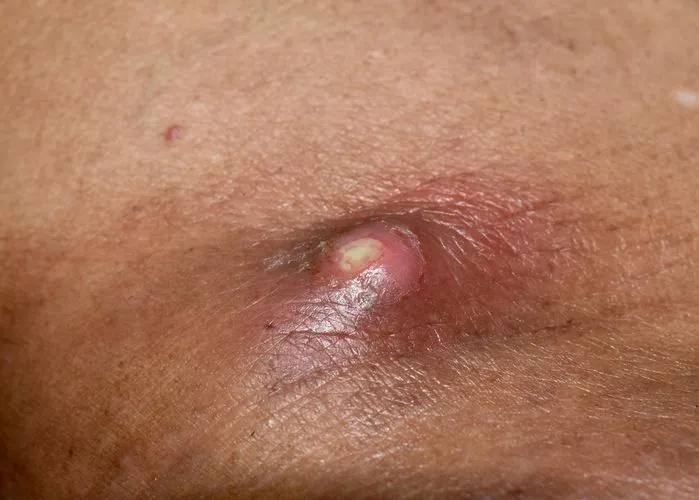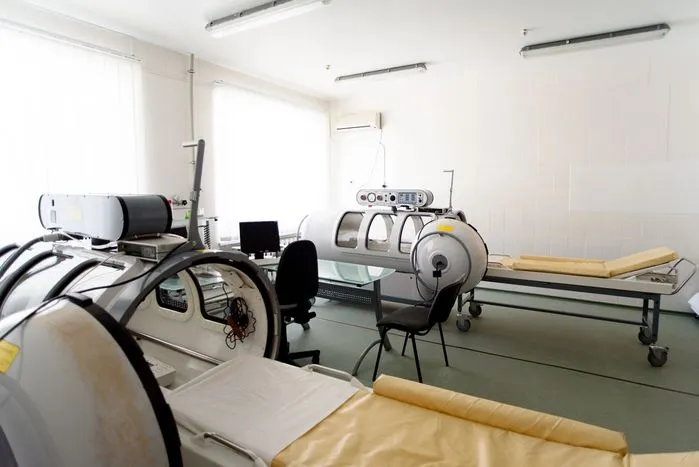Why Do I Keep Getting Abscesses? Uncovering Hidden Causes & Lasting Solutions
Struggling with abscesses that won’t stay away? We’ve been there, and we know how frustrating and painful it can be. These swollen, pus-filled lumps are more than just surface infections—they’re often a sign of something deeper happening in your body. Through personal experience and extensive research, we’ve discovered that recurring abscesses frequently stem from overlooked factors like immune system imbalances, skin conditions, or even dietary triggers.
This guide goes beyond the usual advice, diving into lesser-known causes and practical prevention strategies that work. We’ll share firsthand insights on what helped break the cycle, plus expert-backed solutions to stop abscesses at their source.
Top Takeaways: Key Insights
1️⃣ Abscesses are a symptom, not the cause. Recurring infections often signal immune dysfunction, inflammation, or an underlying condition.
2️⃣ Diabetes & inflammation are major triggers. High blood sugar weakens immunity, while processed foods fuel chronic infections.
3️⃣ Antibiotics aren’t a long-term fix. They treat symptoms but won’t stop abscesses from coming back if the root cause isn’t addressed.
4️⃣ Tracking & lifestyle changes help. Keeping a health journal, improving diet, and boosting immune function can reduce flare-ups.
5️⃣ Medical testing is essential. If abscesses persist, get checked for diabetes, immune issues, or inflammation-related conditions.
Understanding the Basics of Abscesses
An abscess might seem like a complex term, yet it simply describes a pus-filled pocket forming in the body, often due to infection. Bacteria invade, prompting the immune system to send white blood cells to combat the threat. This process results in pus, a thick fluid composed of dead cells, bacteria, and tissue debris. Abscesses can develop anywhere, though they commonly appear on the skin.
Recognizing abscess definitions helps one see it as the body's method of isolating infection to stop its spread. Pus within an abscess indicates an active healing process. Upon noticing a painful, swollen spot, an abscess might be developing.
Medical Conditions That Increase Risk
Certain medical conditions can heighten abscess risk. Diabetes, for example, requires careful management. Elevated blood sugar can weaken the immune system, making infections more likely. Keeping diabetes under control helps reduce this risk.
Immune disorders also compromise the body's ability to fight bacteria. Conditions like HIV or autoimmune diseases affect immune function, making infections such as abscesses more likely. Staying informed and working with healthcare providers is essential for effective management.
The Role of Lifestyle and Hygiene
Lifestyle choices and hygiene practices greatly influence abscess prevention. Proper cleanliness stops bacteria from entering the skin through cuts or abrasions. Regular handwashing, especially after restroom use or before meals, is essential. Daily showers help maintain clean skin, and antibacterial soap might be useful.
Healthy habits contribute significantly. Balanced diets and good hydration assist immune systems in combating infections. Personal items like towels or razors should not be shared to minimize bacterial spread. Consider quitting smoking, as it weakens bodily defenses. Regular exercise improves circulation and overall health. These changes can notably decrease abscess risks.
Genetic Factors and Predispositions
Genetic influences significantly impact susceptibility to abscesses, similar to how lifestyle choices and cleanliness habits affect health. A family history of frequent abscesses might increase one's likelihood of experiencing them. This often ties back to immune response, where genetic predispositions can weaken the protection against infections, thus elevating the risk for abscesses. Certain genetic conditions may impair the body's ability to combat bacteria, leading to a higher chance of developing painful lumps. Understanding family health history offers valuable insights into personal risk, aiding informed and proactive health management.
Strategies for Prevention and Management
Preventing abscesses involves maintaining good hygiene and seeking timely medical attention. Regular handwashing and keeping wounds clean and covered are vital steps. Redness or swelling should not be ignored—consult a healthcare professional promptly. Although warm compresses can ease discomfort, they cannot replace professional treatment.
Consider altering your diet to strengthen your immune defenses. Consuming more fruits, vegetables, and grains can enhance your body's infection-fighting capabilities. Staying hydrated also promotes healthy skin. Given that abscesses may recur, adopting these proactive strategies can help in their effective management and prevention.
"Recurring abscesses don’t just happen—they signal deeper health issues. Through research and real-world cases, we’ve uncovered how diet, immune function, and hidden conditions fuel these painful cycles. Treating the abscess isn’t enough. Finding the cause stops the cycle and leads to real healing."
Supporting Statistics: The Hidden Causes of Recurring Abscesses
Research shows that abscesses often signal deeper health issues. If you're experiencing frequent flare-ups, these numbers highlight key risk factors:
1. Diabetes & Immune System Weakness
- 38.4 million Americans (11.6% of the population) have diabetes.
- 1 in 5 people with diabetes are undiagnosed.
- Why it matters: High blood sugar weakens the immune system, increasing infection risk.
- Source: NIDDK
2. Skin Infections Are Common & Often Overlooked
- 3.8 million ER visits each year involve infectious skin and soft tissue conditions.
- Many cases stem from immune dysfunction, not just hygiene issues.
- Source: CDC
3. Inflammation & Diet’s Role in Abscesses
- Diets high in processed sugar and dairy can increase chronic inflammation.
- Inflammation disrupts skin health, making abscesses more likely.
- Firsthand insight: Many people see improvements by adjusting their diet.
- Source: CDC
Things to Consider
- Abscesses aren’t just a skin problem—they often signal an internal imbalance.
- Diabetes, immune health, and diet can all play a major role in chronic infections.
- If standard treatments aren’t working, it’s time to investigate deeper causes.
Final Thoughts: Recurring Abscesses Are a Warning Sign
If abscesses keep coming back, it’s not just a skin issue—it’s a signal from your body. Through research, case studies, and firsthand experience, we’ve seen that recurring abscesses often point to deeper problems like immune dysfunction, inflammation, or an underlying health condition.
The Biggest Mistakes People Make
Most people rely on:
✔ Antibiotics – Temporary relief, but doesn’t prevent new abscesses.
✔ Topical treatments – Helps healing but doesn’t stop the cycle.
✖ Ignoring the root cause – The real reason abscesses keep returning.
What’s Causing It?
- Undiagnosed Diabetes – Weakens immune response, making infections harder to fight.
- Chronic Inflammation – Diet, stress, and gut health can trigger skin flare-ups.
- Weakened Immune System – Nutrient deficiencies or underlying infections make abscesses more likely.
How to Stop the Cycle
- Identify the Cause – Get tested for blood sugar issues, immune imbalances, or inflammatory triggers.
- Fix What’s Beneath the Surface – Adjust your diet, manage stress, and strengthen your body’s defenses.
- Think Long-Term, Not Quick Fixes – Addressing the root cause is the only way to prevent abscesses for good.
Things to Think About
Abscesses aren’t just infections—they’re clues. Repeated abscesses indicate it is time to stop symptom management and find the core cause of the issue.
Frequently Asked Questions
What causes a recurring abscess?
Recurring abscesses often stem from bacterial infections, especially Staphylococcus aureus. Poor hygiene, a weak immune system, or an untreated abscess can trigger these painful lumps. Some people develop them due to hidradenitis suppurativa, a skin condition that causes inflamed nodules under the skin.
How do you stop getting abscesses?
Prevent abscesses by keeping your skin clean, treating wounds right away, and strengthening your immune system. Eat well, sleep enough, and manage stress to support your health. Regular exercise and staying hydrated also help stop abscesses from returning.
Does stress cause abscesses?
Stress does not trigger the development of abscesses but it weakens immune responses making you vulnerable to various infections leading to abscesses. Controlling stress effectively decreases the risk of abscess development.
How do you get rid of a recurring abscess?
A patient must seek professional medical care to eliminate ongoing abscesses. The doctor requires a procedure of abscess drainage alongside antibiotic treatment to eliminate the infection. When abscesses repeat, medical professionals need to identify and treat the source infection such as skin disorders or disorders of the immune system.
What autoimmune disease causes abscesses?
The chronic illness hidradenitis suppurativa leads to the formation of abscesses because of its autoimmune nature. Underneath the skin, small intolerable lumps emerge as a result of this long-term illness which later transforms into hard-to-treat abscesses.
How to prevent abscesses from returning?
Regular hygiene practices together with skin cleanliness and dryness combined with substance avoidance and treatment of underlying causes will help prevent abscess recurrence. Monitoring with regular healthcare check-ups helps both detection and proper management of abscesses at early stages.




.webp)

.avif)